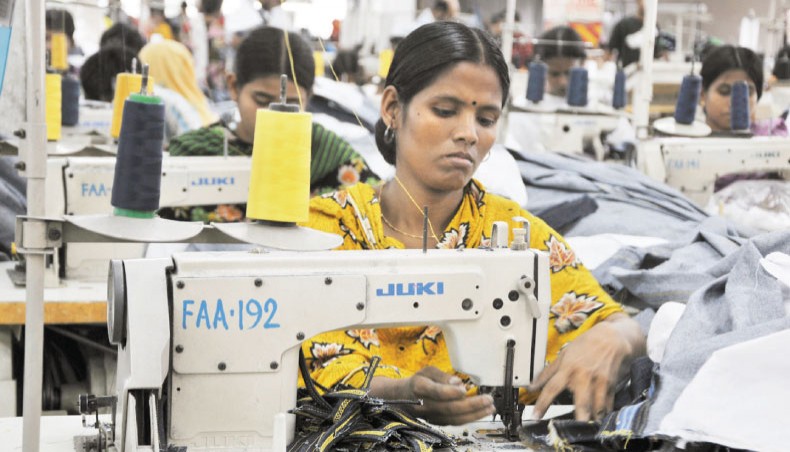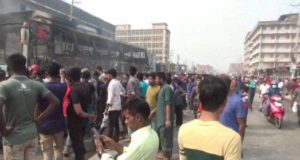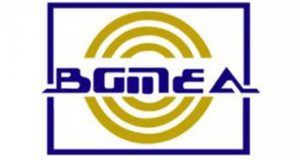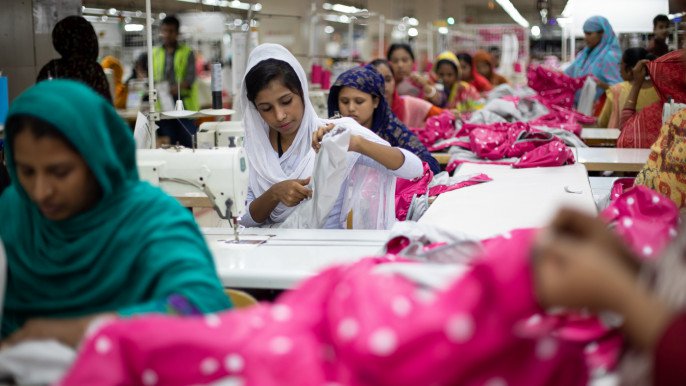Published in New Age on February 09, 2018

Photo: New Age
An ILO expert committee has expressed its dissatisfaction over the recent labour law amendment proposals by the Bangladesh government, saying that the proposal of minor reduction in the minimum membership requirements would not contribute to the free establishment of workers’ organisations in a large number of enterprises in the country.
Reducing the existing 30 per cent threshold, the government has proposed four slabs of worker representation – for less than 2,000 workers in an establishment, the requirement would remain 30 per cent; for enterprises with 2,001 to 5,000 workers it would be 27 per cent, for 5,001 to 7,500 workers – 24 per cent and for 7,501 workers or more – 20 per cent — for the trade union registration.
‘The committee regrets that the proposed amendments do not respond to its longstanding concerns and notes with concern that the minor reduction in the minimum membership requirements proposed by the government is not likely to have an impact on a large number of enterprises and thus would not, in any meaningful manner, contribute to the free establishment of workers’ organisations,’ the report says.
The Committee of Experts on the Application of Conventions and Recommendations of International Labour Organisation has recently submitted the report to the governing body of the ILO.
The expert committee urged the government to take necessary measures to review sections 179(2) and 179(5) of the BLA without any delay in consultation with social partners, with a view to truly reducing the minimum membership requirement.
‘A trade union of workers shall not be entitled to registration under this Chapter, unless it has a minimum membership of 30% (thirty percent) of the total number of workers employed in the establishment in which it is formed,’ sections 179(2) of Bangladesh Labour Act stipulates.
According to the Section 179(5) of BLA, no registration shall be provided to more than 3 (three) trade unions] at any time in an establishment or group of establishments.
The ILO committee requested the government to provide information on the approximate number of enterprises falling within each of the mentioned enterprise categories for the purpose of establishing adequate minimum membership requirement and to indicate the sectors in which they operate.
The committee called upon the government of Bangladesh to bring the BLA, Bangladesh Labour Rules and draft EPZ Labour Act into conformity with the provisions of the convention regarding freedom of association.
It also urged the government to ensure the reinstatement of Ashulia area workers who were illegally dismissed following demonstrations demanding wage hike in December 2016.
The committee expresses deep concern over continued violence and intimidation of workers and says that a truly free and independent trade union movement can only develop in a climate free from violence, pressure and threats of any kind against the leaders and members of such organisations.
The committee urged the government to provide information on the remaining specific allegations of violence and intimidation.
The expert committee observes that the labour directorate retains discretionary power to refuse registration and the rejection of applications for the registration of trade unions increased in the year of 2017.
It shows that a mere 36 per cent of applications for registration submitted through the online registration system (291 out of 801) were accepted, whereas the status of the remaining 64 per cent was unclear.
The report says that more than a third of the applications for registration available in the database on registration (62 out of 191) were marked as rejected without a clear indication as to the reasons.
The ILO recommended providing updated statistics as to the overall number of applications for registration received, accepted and/or rejected, the reasons given for all rejections, and to clarify the status of the 509 applications submitted through the online system, which were not granted.
 CPD RMG Study Stitching a better future for Bangladesh
CPD RMG Study Stitching a better future for Bangladesh



